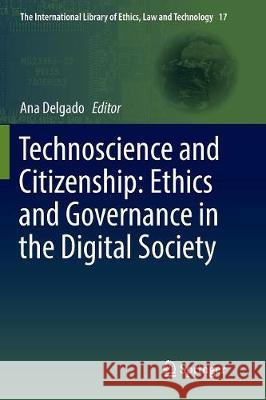Technoscience and Citizenship: Ethics and Governance in the Digital Society » książka
topmenu
Technoscience and Citizenship: Ethics and Governance in the Digital Society
ISBN-13: 9783319812779 / Angielski / Miękka / 2018 / 189 str.
Kategorie BISAC:
Wydawca:
Springer
Seria wydawnicza:
Język:
Angielski
ISBN-13:
9783319812779
Rok wydania:
2018
Wydanie:
Softcover Repri
Ilość stron:
189
Waga:
0.31 kg
Wymiary:
23.39 x 15.6 x 1.17
Oprawa:
Miękka
Wolumenów:
01
Dodatkowe informacje:
Wydanie ilustrowane











